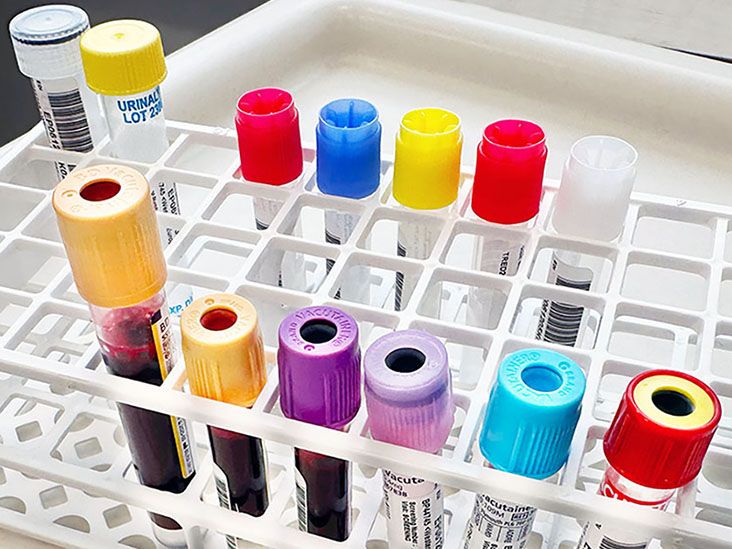The diet can have a significant impact on hypothyroidism. Some nutrients like selenium and zinc may improve thyroid function, while others may worsen or interfere with hypothyroidism treatments.
The thyroid is a small, butterfly-shaped gland in the throat. Having hypothyroidism, or an underactive thyroid, means that this gland produces less of its hormones than the body needs.
This can slow down the body’s metabolism and cause weight gain and fatigue, among other symptoms.
Below, learn about how the diet can affect hypothyroidism symptoms. We also suggest specific foods to eat and avoid and provide a 1-week meal plan.

Having hypothyroidism means that the body does not have enough thyroid hormones. While changing the diet cannot cure this, it can help manage the condition.
Starting off, it can help to know the following
- Foods that contain certain nutrients, such as iodine, selenium, and zinc, can help maintain healthy thyroid function.
- Some foods may negatively affect thyroid function and worsen symptoms of hypothyroidism.
- Some foods and supplements can interfere with how well the body absorbs thyroid replacement medicine, so limiting these can also help.
The body needs iodine to produce thyroid hormones. But because the body cannot make iodine, people need to get it from their diets.
Foods rich in iodine include:
- cheese
- milk
- iodized table salt
- saltwater fish
- seaweed
- whole eggs
Iodine deficiency is relatively uncommon in the United States, due to the wide use of iodized table salt, but it is prevalent in other areas.
A deficiency can cause an enlarged thyroid gland, known as a goiter.
However, it is crucial to avoid consuming too much iodine. This can actually worsen hypothyroidism, and it can also worsen hyperthyroidism, which refers to the body having excess thyroid hormones.
For this reason, a person should only add more iodine to their diet if a doctor recommends it.
A 2017 review found that maintaining selenium levels in the body helps prevent thyroid disease and promotes overall health.
Foods rich in selenium include:
- Brazil nuts
- tuna
- shrimp
- beef
- turkey
- chicken
- ham
- eggs
- oatmeal
- brown rice
One
Foods rich in zinc include:
- oysters
- beef
- crab
- fortified cereals
- pork
- chicken
- legumes
- pumpkin seeds
- yogurt
Certain nutrients can interfere with thyroid health. While foods rich in these nutrients are not off-limits, restricting the intake of these foods may help a person manage their hypothyroidism.
Goitrogens
Goitrogens are compounds that
However, in regular amounts, vegetables that contain goitrogens, such as broccoli and bok choy, are beneficial for overall health and do not interfere with thyroid function.
Plus, cooking the vegetables mostly deactivates the goitrogenic compounds.
Foods that contain goitrogens are typically green cruciferous vegetables, including:
- collards
- brussels sprouts
- Russian kale
- broccoli
- broccoli rabe
- cauliflower
- cabbage
Soy
Some evidence indicates that soy might interfere with how the body produces thyroid hormones.
In one
However,
Foods that contain soy include:
- soy milk
- soy sauce
- edamame
- tofu
- miso
Gluten
People with
This disease causes chronic inflammation and damage to the small intestine due to the ingestion of gluten, a protein in wheat and other grains, including barley, oats, and rye.
Treating celiac disease involves switching to a gluten-free diet. People with autoimmune-related hypothyroidism might try going gluten-free to see whether their symptoms improve.
Processed foods
Reducing the intake of ultra-processed foods and added sugars may help improve symptoms, manage weight, and boost overall well-being.
Examples of ultra-processed foods and drinks that also contain high amounts of added sugar include:
- fast food
- hot dogs
- donuts
- cakes
- cookies
- soda
It is important to take thyroid medication on an empty stomach so that the body can absorb it fully. Take it at least
People should not take this medication within 4 hours of eating foods that contain iron or calcium.
Also, the following medications and supplements
- antacids or acid reducers
milkTrusted Source and calcium supplements- iron supplements
- high-fiber foods, such as bran flakes, fiber bars, and fiber drinks
- foods high in iodine
- soy-based foods
In general, the best diet for a person with hypothyroidism contains plenty of fruits, vegetables, filling proteins, healthy fats, and moderate amounts of healthy carbohydrates.
Still, it is important for each person to experiment and develop a diet that helps them feel their best.
Below, find a sample 1-week meal plan for an omnivorous person with hypothyroidism:
Monday
- Breakfast: Scrambled eggs with salmon
- Lunch: A salad with grilled shrimp
- Dinner: A black bean and vegetable stir-fry with brown rice
Tuesday
- Breakfast: A fruit salad with yogurt and sliced almonds
- Lunch: A grilled chicken salad topped with pumpkin seeds
- Dinner: Baked salmon with roasted vegetables
Wednesday
- Breakfast: An omelet with mushrooms and zucchini
- Lunch: Bean soup with a whole wheat or gluten-free roll.
- Dinner: Shrimp fajitas with corn tortillas, peppers, and onions
Thursday
- Breakfast: A protein smoothie with berries and nut butter
- Lunch: A cauliflower rice bowl with ground turkey, black beans, salsa, guacamole, cheese, and veggies
- Dinner: Roasted chicken with quinoa and broccoli
Friday
- Breakfast: Poached or boiled eggs with avocados and berries
- Lunch: Tuna salad lettuce cups with whole wheat or gluten-free crackers
- Dinner: A grilled steak with baked sweet potato and a side salad
Saturday
- Breakfast: Coconut yogurt with berries and almond butter
- Lunch: A turkey burger on a green salad with sweet potato fries
- Dinner: Pan-fried crab cakes with brown rice and vegetables
Sunday
- Breakfast: A frittata with vegetables
- Lunch: A quinoa bowl with vegetables and chickpeas
- Dinner: Grilled shrimp skewers with bell peppers and pineapple
People with hypothyroidism may gain weight more easily than people without the condition. This is because hypothyroidism can slow metabolism.
Having a healthy diet rich in fruits, vegetables, filling proteins, and healthy fats can help manage weight and boost well-being. These foods are also rich in fiber, which may help people feel fuller for longer.
In addition, regular moderate- to high-intensity aerobic exercise and strength training can help boost metabolism and promote weight loss. Staying active can also improve levels of energy and the quality of sleep.
In addition, a person may notice a small weight reduction — typically under 10% — when they take medication to treat hypothyroidism.
Hypothyroidism refers to the thyroid gland not producing enough of certain hormones to meet the body’s needs.
Untreated, it can reduce metabolism and cause fatigue, among other symptoms. Treatment usually involves taking a synthetic version of thyroid hormones.
Some nutrients and foods can help or hinder the thyroid’s function. Overall, it is important to aim for a healthy diet that supports the absorption of thyroid medication and helps with maintaining a healthy weight.


